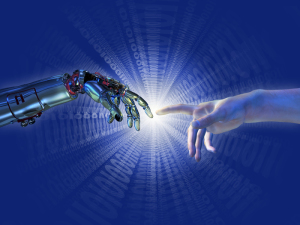by
Thomas Dworetzky, Contributing Reporter | October 20, 2017
Big data is fast becoming a big player in the health care sector – and the artificial intelligence capabilities it creates could become a $28 billion market by 2025.
"Artificial intelligence in the health care sector has maximum usage in the personal health and nursing assistant application,” Rishabh Sinha, an analyst at BIS Research, stated, adding that, “the adoption of personal health and nursing assistants has witnessed a robust growth, over recent years. Presently, the people are more focused on utilizing their precious time doing something productive rather than wasting it in the hospitals waiting for their turn. The personal health and nursing assistants support the patients by analyzing their historical medical reports and present conditions."
In its new report, BIS Research estimates that the artificial intelligence market in the space will grow at a CAGR of 45.1 percent, driven not only by assistant-level applications, but also by the insatiable thirst for data from the trend to evidence-based medicine, and the need to keep costs down by applying best practices derived from information analysis.



Ad Statistics
Times Displayed: 172732
Times Visited: 3126 For those who need to move fast and expand clinical capabilities -- and would love new equipment -- the uCT 550 Advance offers a new fully configured 80-slice CT in up to 2 weeks with routine maintenance and parts and Software Upgrades for Life™ included.
This combines with an increasing output of data from ever more pervasive and complex diagnostic tools from the “fitbit” level of personal health data collection to increasingly sophisticated large diagnostic imaging machines.
In fact, BIS is not the only one to see huge growth in the AI-health care space.
In August, Bipin Thomas reported in HealthCare Business News that Accenture estimates
peg the increase even higher.
By 2026, he noted, a number of sectors within health care will combine to hit a total of about $150 billion, including:
-Robot-assisted surgery — $40 billion.
-Virtual nursing assistants — $20 billion.
-Administrative workflow assistance — $18 billion.
-Fraud detection — $17 billion.
-Dosage error reduction — $16 billion.
-Connected machines — $14 billion.
-Clinical trial participant identifier — $13 billion.
-Preliminary diagnosis — $5 billion.
-Automated image diagnosis — $3 billion.
-Cybersecurity — $2 billion.
Robot-assisted surgery coming in first, specifically for orthopedic surgery, he argued, will bump current leader, virtual assistants, to number 2.
“The AI technology incorporates data from actual surgical experiences to inform new, improved techniques and insights,” he explained.
Faced with this tsunami of health data, artificial intelligence will be needed to pull the wheat from the chaff, as the task of sifting through all this information for a given patient begins to overwhelm the ability of human diagnosticians to keep up. This is especially true, argued Thomas, as there is a global shortage of 7 million physicians, nurses and other health workers worldwide, and the problem is increasing.

